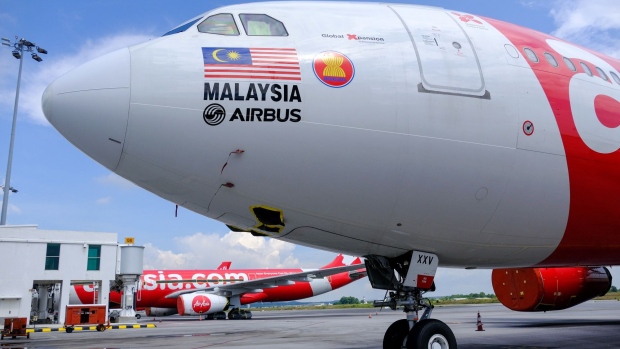Feb 22, 2023
China Travel Demand Fails to Pick Up Despite Reopening, AirAsia X Says
, Bloomberg News

(Bloomberg) -- Malaysia’s AirAsia X Bhd. has only been able to sell enough tickets from China to fill just half of an aircraft’s seats, a far cry from pre-pandemic days when 90% of planes were occupied on the same routes, underscoring challenges for the second-largest aviation market as it reopens to the outside world.
“Sales haven’t been off the roof,” Benyamin Ismail, chief executive officer of the long-haul budget airline, said in an interview Wednesday. “A lot of people are still uncertain about the requirements of the Chinese coming back in to China, whether you need to be quarantined. Even though they say they are open, we don’t know if you have Covid, you’d have to stay at a center or not.”
China ended flight restrictions and started reopening borders in January after three years of isolation during the pandemic. The sudden and rapid easing of stringent rules also caught some embassies and consulates in the country off guard and understaffed, with some Chinese executives having to wait as long as six to eight weeks to get business visas to travel to Europe.
AirAsia X plans to fly to Guangzhou, Shanghai and Chengdu starting this month, and will add services to Beijing around April, Ismail said. At the moment, even outbound travel from Malaysia to China has been “very, very weak” given Covid testing requirements — which are no longer inexpensive — and a complicated visa process, he said.
On Tuesday, AirAsia X, which operated just seven of its 14 aircraft in its fleet in the three months through December, posted a profit of 153 million ringgit ($34 million), boosted by the year-end travel season. Shares of the company surged as much as 40% Wednesday to the highest level since October 2021. Capital A Bhd., its parent, rose as much as 10.5%.
AirAsia X is committed to taking delivery of 15 Airbus SE A330neos and 20 A321 XLR jets, after it downsized the order during the pandemic while undergoing a restructuring process, Ismail said. The A321 XLR, a larger version of the best-selling A321 family, will be deployed to smaller cities in China and India, and will be used to grow the airline’s network and not merely to replace older planes, he said.
©2023 Bloomberg L.P.


